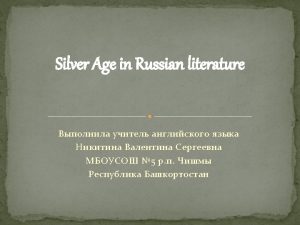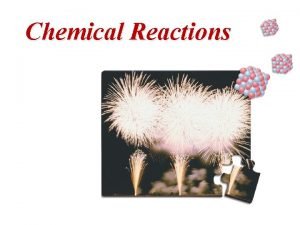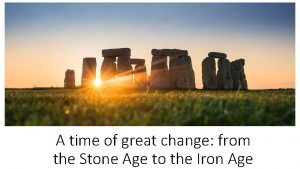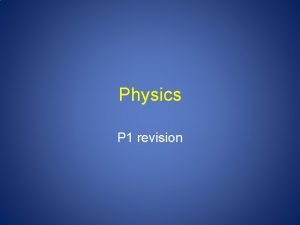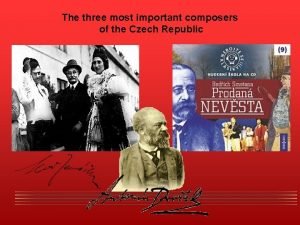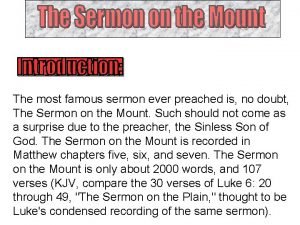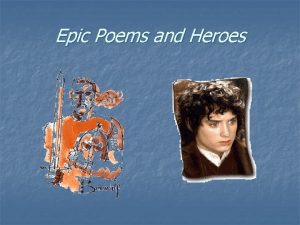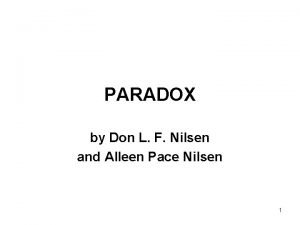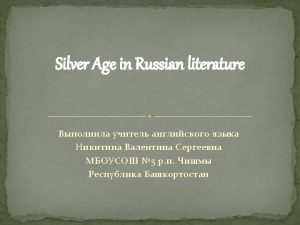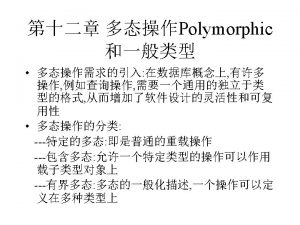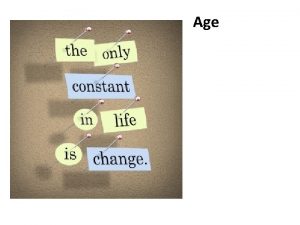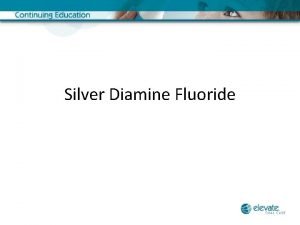The most famous names of the Silver Age












- Slides: 12


The most famous names of the Silver Age The heyday of the Silver Age fell on the year 1915, the time of its highest rise and its end. Realistic portrayal of life did not satisfy authors any more, and their argument with the classics of the 19 th century generated new literary movements, such as symbolism, acmeism, and futurism. The first literary current was symbolism that united quite different poets, such as Konstantin Balmont, Valery Bryusov, and others.

Konstantin Balmont was born in 1869. He is a poet, a translator, and a critic. The top of his success was in 1900 -1905. He was a poet of symbolism and raised global queries about saving the mankind, attaining harmony by merging with the Soul of the World, Beauty, and Love.

Nikolai Gumilyov was born in 1886. He belonged to the new literary movement – acmeism. Acmeism, according to him , was not supposed to reach for the unknown and try and fully encompass the diversity of the world. Nowadays acmeism is remembered only due to the names of Gumilyov, Anna Akhmatova, and Osip Mandelshtam.

Anna Akhmatova 1889 -1966 Anna Akhmatova (Gorenko) was the leader and the heart and the soul of St. Petersburg tradition of Russian poetry in the course of a half a century. Akhmatova’s reputation continued to grow after her death.

Gumilyov and Akhmatova In 1910 Anna married the boyish poet Nikolai Gumilyov. Their son, Lev, born in 1912, was to become a famous Neo-Eurasianist historian.

Vladimir Mayakovsky (1893 -1930) was a Russian poet, among the foremost representatives of early 20 th century - Futurism. Being a witness of October Revolution, Mayakovsky was a proletarian poet. Near the end of the 1920 s , he became disillusioned with the course the Soviet Union was taking under Stalin and in 1930 he shot himself. 4 years earlier he reprimanded Esenin in the poem “To Sergey Esenin” for being too week to have committed suicide.

Sergei Esenin 1895 -1925 Esenin is traditionally considered to be peasant poet, his collections of poignant poetry about love and the simple life made him very popular. Some of his poems became romances. Most of his writings were banned by the Kremlin during the reigns of Stalin and Khrushchev. Only in 1966 most of his works were republished.

Marina Tsvetaeva 1892 -1941 Marina Tsvetayeva lived through and wrote of the Revolution of 1917 and the Moscow famine that followed it. As a lyrical poet, her passion and daring linguistic experimentation marked her striking chronicler of her times and depths of the human condition. Without means of support and in deep isolation, Tsvetayeva committed suicide in 1941.

Different were the hard fates of wonderful Silver Age poets. Somebody could not bear living in the newly reshaped motherland had to flee, others, like Nikolai Gumilyov, were innocently executed, somebody, like Anna Akhmatova, stayed in the native land suffered through all its sorrows, whereas some of them, like Vladimir Mayakovsky or Marina Tavetayeva voluntary quitted the scene. Anyway, all of them had contributed to the true miracle, creating the Silver Age of Russian poetry.


Resources: http: // www. russia-ic. com/culture art/838 http: // litera. ru/stixiya/vek/ http: // pishi-stihi. ru/detail. php? id=96 http: // www. russianlegacy. com/en/go to/culture/poetry/pasternak. htm http: // www. homeenglish. ru/Articles. Akhmatova. htm
 Famous names with silver
Famous names with silver Silver carpet bedroom/silver carpet living room
Silver carpet bedroom/silver carpet living room Example of a chemical change
Example of a chemical change Stone age, bronze age iron age timeline
Stone age, bronze age iron age timeline Iron age bronze age stone age timeline
Iron age bronze age stone age timeline Name 2 famous entrepreneurs of the gilded age
Name 2 famous entrepreneurs of the gilded age Most kids hate learning gcse energy names
Most kids hate learning gcse energy names Most kids hate learning gcse energy names
Most kids hate learning gcse energy names Most famous czech composers
Most famous czech composers What is the most famous sermon ever preached?
What is the most famous sermon ever preached? Famous epic poems
Famous epic poems What is the most famous paradox?
What is the most famous paradox? Famous english writer william shakespeare
Famous english writer william shakespeare
